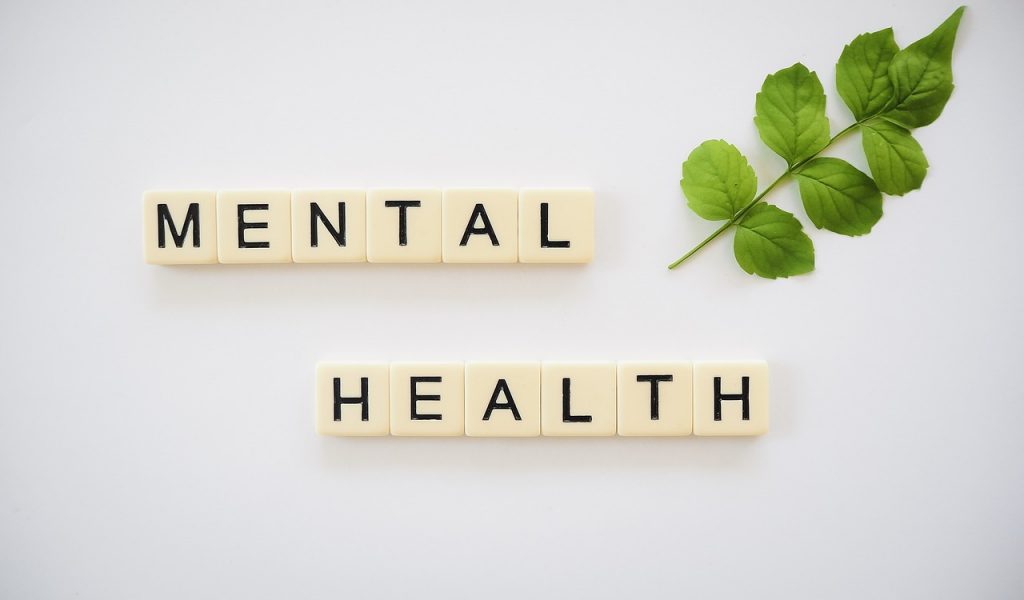
Top Tips to make you feel good
15 Wellness Tips
Most of us will experience some form of mental ill-health at some point in our time at University and University this year might be even more stressful than usual. If you’re moving away for the first time and in need of tips to deal with feelings of anxiety, depression or other mental illness away from home, or you’re a third-year returning to Manchester with a bit more anxiety than usual, we have compiled a few tips and ideas to help:
- Try Mindfulness
 Mindfulness is about taking a moment to step back and acknowledge the present, and our feelings. A common way to practise mindfulness is through meditation (try an app like Headspace which offers several introductory lessons on meditation) or just through taking a time to pause and breathe in a stressful situation. You can find out more about mindfulness on the NHS website and through Mindful.org which has a step by step by step guide and lessons to follow.
Mindfulness is about taking a moment to step back and acknowledge the present, and our feelings. A common way to practise mindfulness is through meditation (try an app like Headspace which offers several introductory lessons on meditation) or just through taking a time to pause and breathe in a stressful situation. You can find out more about mindfulness on the NHS website and through Mindful.org which has a step by step by step guide and lessons to follow.
Info: https://www.nhs.uk/conditions/stress-anxiety-depression/mindfulness/
Info: https://www.mindful.org/meditation/mindfulness-getting-started/
- Go on a Walk
 Getting some exercise will release much-needed endorphins, giving you a bit of a boost and hopefully improving your mood slightly. Manchester has some gorgeous public parks to walk through, or you could even drag some of your friends on a quick train to the peak district for some more serious hiking. If you keep at it, regular exercise has been shown to reduce the risk of becoming depressed and help those who are depressed to recover. Even just walking in and out of Uni will help (and will keep the buses less crowded).
Getting some exercise will release much-needed endorphins, giving you a bit of a boost and hopefully improving your mood slightly. Manchester has some gorgeous public parks to walk through, or you could even drag some of your friends on a quick train to the peak district for some more serious hiking. If you keep at it, regular exercise has been shown to reduce the risk of becoming depressed and help those who are depressed to recover. Even just walking in and out of Uni will help (and will keep the buses less crowded).
- Take Notice of the Environment
 Whether you’re in a park or the peaks, take note of the environment. The Japanese technique of ‘forest bathing’ or Shinrin yoku is a form of mindfulness, observing nature around you. it should help you to de-stress and clear your mind, there’s advice on how to forest bathe here: https://www.forestryengland.uk/blog/forest-bathing.
Whether you’re in a park or the peaks, take note of the environment. The Japanese technique of ‘forest bathing’ or Shinrin yoku is a form of mindfulness, observing nature around you. it should help you to de-stress and clear your mind, there’s advice on how to forest bathe here: https://www.forestryengland.uk/blog/forest-bathing.
Why not bring a bit of nature into your room with a plant or two too? They’ll help clean the air and studies show having a plant can improve mood too.
- Try a sport
 Exercise is demonstrably beneficial to mental health, so why not try a new sport? The University of Manchester’s Sporticipate programme lets you try out lots of new sports at a beginner level, and with all equipment provided. You can find out more here: http://www.sport.manchester.ac.uk/sport/sporticipate/
Exercise is demonstrably beneficial to mental health, so why not try a new sport? The University of Manchester’s Sporticipate programme lets you try out lots of new sports at a beginner level, and with all equipment provided. You can find out more here: http://www.sport.manchester.ac.uk/sport/sporticipate/
- Try Calm
 Calm is a really useful app which aims to reduce stress and anxiety and help you sleep better. They have sleep stories, guided meditations and calming music to help you relax if you’re feeling anxious or struggling to sleep.
Calm is a really useful app which aims to reduce stress and anxiety and help you sleep better. They have sleep stories, guided meditations and calming music to help you relax if you’re feeling anxious or struggling to sleep.
- Get Good Quality Sleep
 Speaking of sleep- the quality and amount of sleep you get can affect your mental health substantially. Calm is one good option if you’re struggling with sleep, another is to spend less time on devices before you sleep. Switching from a phone alarm to an alarm clock can help take the temptation away or try moving your phone to a different side of the room before you go to sleep.
Speaking of sleep- the quality and amount of sleep you get can affect your mental health substantially. Calm is one good option if you’re struggling with sleep, another is to spend less time on devices before you sleep. Switching from a phone alarm to an alarm clock can help take the temptation away or try moving your phone to a different side of the room before you go to sleep.
- Cook Something Nice (and ideally healthy)
 Diet is also something with can affect your mental health. If you’re in a slump, cooking healthy foods or anything at all might feel impossible. But spending the time to make something more than chips will be good for your body and mind and is also a mini achievement for the day!
Diet is also something with can affect your mental health. If you’re in a slump, cooking healthy foods or anything at all might feel impossible. But spending the time to make something more than chips will be good for your body and mind and is also a mini achievement for the day!
- Reading
 Hopefully, you’ve bought your favourite book to university with you. If not, you can take a copy out of the library. Re-reading your favourite book will hopefully bring a bit of comfort if your mental health has taken a hit and reading, in general, will also help you to relax. A University of Sussex study found that reading can reduce stress by up to 68%, and if you read with a cup of tea the percentage is even higher. Try adding reading to your evening routine to help you wind down before sleeping.
Hopefully, you’ve bought your favourite book to university with you. If not, you can take a copy out of the library. Re-reading your favourite book will hopefully bring a bit of comfort if your mental health has taken a hit and reading, in general, will also help you to relax. A University of Sussex study found that reading can reduce stress by up to 68%, and if you read with a cup of tea the percentage is even higher. Try adding reading to your evening routine to help you wind down before sleeping.
- Painting/Drawing/Anything Creative!
 The arts can help to manage mental health and to support recovery, grabbing a paintbrush or just doodling with a biro can help you to de-stress and clear your head. Even listening to music or watching a film can help you to relax after a heavy day.
The arts can help to manage mental health and to support recovery, grabbing a paintbrush or just doodling with a biro can help you to de-stress and clear your head. Even listening to music or watching a film can help you to relax after a heavy day.
- Talk About It (on Zoom or in real life)
 If your mental health is diving, try not to keep it to yourself. Your friends and family will want to help you and be there for you when you need to chat, talking about it will hopefully give yourself a better understanding of your feelings. If you don’t feel you have anyone to go to, get in touch with the Wellbeing team or the Counselling Service, they’re here to help you.
If your mental health is diving, try not to keep it to yourself. Your friends and family will want to help you and be there for you when you need to chat, talking about it will hopefully give yourself a better understanding of your feelings. If you don’t feel you have anyone to go to, get in touch with the Wellbeing team or the Counselling Service, they’re here to help you.
- Tidy your Room
 The extent to which a tidy room is a tidy mind is debatable, but a comfortable and comforting room can do wonders for anxiety. It can get easy to let your room regress into a state after a few days of not feeling at your best. Tidying might help to signal a break from that period and into a more comfortable, productive and happier few days.
The extent to which a tidy room is a tidy mind is debatable, but a comfortable and comforting room can do wonders for anxiety. It can get easy to let your room regress into a state after a few days of not feeling at your best. Tidying might help to signal a break from that period and into a more comfortable, productive and happier few days.
- Learning Something New
 If you’re stressed about University work, whether exams or essays, learning can become synonymous with stress. A good way to stop this and to make learning less anxiety-inducing is to watch or read something educational outside of your regular university work. TED talks, YouTube videos or podcasts are a good way to do this and will make you feel productive even when you’re having a well-needed break.
If you’re stressed about University work, whether exams or essays, learning can become synonymous with stress. A good way to stop this and to make learning less anxiety-inducing is to watch or read something educational outside of your regular university work. TED talks, YouTube videos or podcasts are a good way to do this and will make you feel productive even when you’re having a well-needed break.
- Visit a Museum
 We’ve talked about ‘forest bathing’ but I think there ought to be ‘museum bathing’ or ‘coffee shop bathing’ too. These are places which get you out of the house and into relaxing atmospheres. The bonus with a museum is that, as in the last point, you’re learning something new. Plus, you are also getting a bit of exercise walking around too. There are so many museums in Manchester that there’ll be one that matches your interests: from the people’s history museum to the national football museum- or if you’re around University and just need to step back out of the campus for a moment to regain calm, there is the Manchester museum too.
We’ve talked about ‘forest bathing’ but I think there ought to be ‘museum bathing’ or ‘coffee shop bathing’ too. These are places which get you out of the house and into relaxing atmospheres. The bonus with a museum is that, as in the last point, you’re learning something new. Plus, you are also getting a bit of exercise walking around too. There are so many museums in Manchester that there’ll be one that matches your interests: from the people’s history museum to the national football museum- or if you’re around University and just need to step back out of the campus for a moment to regain calm, there is the Manchester museum too.
- Grab a Jar.
 There are two ideas in this tip: Number one is to grab a jar and write down all the things that relax you when you’re stressed (some of them will be on this list) e.g. watching your favourite film, going on a walk or going to your favourite coffee shop. Whenever you feel overwhelmed, pick something out of the jar and go and do it. The act of writing them out will hopefully make you feel better too even before doing any of them. The second is to grab a jar and every day write down something you were thankful for, proud of or happy about which happened that day. Even if it’s something as small as getting dressed even though you’re staying home.
There are two ideas in this tip: Number one is to grab a jar and write down all the things that relax you when you’re stressed (some of them will be on this list) e.g. watching your favourite film, going on a walk or going to your favourite coffee shop. Whenever you feel overwhelmed, pick something out of the jar and go and do it. The act of writing them out will hopefully make you feel better too even before doing any of them. The second is to grab a jar and every day write down something you were thankful for, proud of or happy about which happened that day. Even if it’s something as small as getting dressed even though you’re staying home.
- Register at the Doctors
 If you are worried about how your mental health is affecting your day to day activities, speak to the Wellbeing or Counselling Services at the University and register at your GP to get an appointment.
If you are worried about how your mental health is affecting your day to day activities, speak to the Wellbeing or Counselling Services at the University and register at your GP to get an appointment.
For more information on wellbeing:
https://www.counsellingservice.manchester.ac.uk/wellbeing/
For the University Counselling Service:
http://www.counsellingservice.manchester.ac.uk/
For more information on how we’re making campus safer this year:
https://www.welcome.manchester.ac.uk/welcome-and-induction/arriving-on-campus/staying-safe/
Mind:
https://www.mind.org.uk/need-urgent-help/using-this-tool/
NHS:
https://www.nhs.uk/conditions/stress-anxiety-depression/mental-health-helplines/
Article by Sarah Cundy

Top Tips to make you feel good
0 Comments

Top Tips to make you feel good
0 Comments

Top Tips to make you feel good
0 Comments

Top Tips to make you feel good
0 Comments

Top Tips to make you feel good
0 Comments

Top Tips to make you feel good
0 Comments

Top Tips to make you feel good
0 Comments

Top Tips to make you feel good
0 Comments

Top Tips to make you feel good
0 Comments

Top Tips to make you feel good
0 Comments

Top Tips to make you feel good
0 Comments

Top Tips to make you feel good
0 Comments

Top Tips to make you feel good
0 Comments

Top Tips to make you feel good
0 Comments


0 Comments